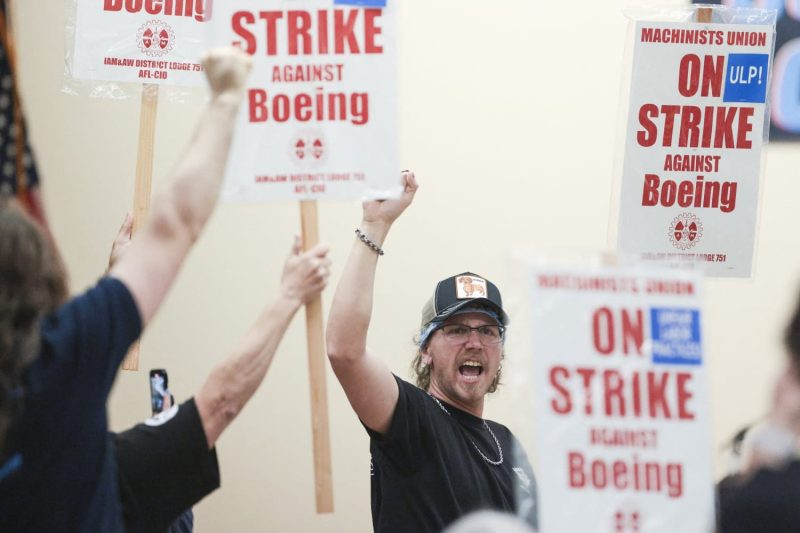
Boeing Factory Workers Take a Stand: Strikes Follow Rejection of Contract
The recent strike by Boeing factory workers presents a complex scenario that highlights the evolving dynamics between labor and management in the aviation industry. The overwhelmingly rejected contract, followed by the decision to strike, underscores the deep-seated issues that exist within the company and the challenges faced by workers in a highly competitive environment.
At the heart of the matter is the disagreement between the workers and Boeing management over the terms of the contract. The fact that the contract was rejected by a significant margin suggests that the workers felt strongly that the terms offered were not in their best interests. This reflects a growing trend in many industries where workers are increasingly demanding better pay, benefits, and working conditions in response to rising living costs and economic uncertainties.
One of the key issues raised by the strike is the question of fairness and equity in the distribution of wealth within the company. The workers, who are essential to Boeing’s operations, feel that they are not being adequately compensated for their contributions, especially in light of the company’s profitability and executive compensation packages. This disparity in wealth distribution mirrors wider societal concerns about income inequality and the concentration of wealth among the top echelons of society.
Moreover, the strike highlights the power dynamics at play between labor and management in the aviation industry. Boeing, as a major player in the aerospace sector, holds significant leverage over its workers, who rely on the company for job security and livelihood. The decision to strike, therefore, represents a bold and risky move by the workers to exert pressure on Boeing management and negotiate better terms.
The strike also brings attention to the broader implications for the aviation industry as a whole. As one of the leading manufacturers of commercial aircraft, Boeing plays a pivotal role in shaping global air travel and transportation. Any disruptions to its operations, such as a prolonged strike, could have far-reaching consequences not only for the company itself but also for its suppliers, customers, and the wider aerospace ecosystem.
In conclusion, the strike by Boeing factory workers serves as a poignant reminder of the challenges faced by workers in asserting their rights and concerns in a modern, globalized economy. The rejection of the contract and the decision to strike reflect deeper issues of fairness, equity, and power within the company and the aviation industry as a whole. As the strike continues and negotiations unfold, it remains to be seen how both parties will navigate these challenges and reach a resolution that is mutually acceptable and sustainable in the long term.
